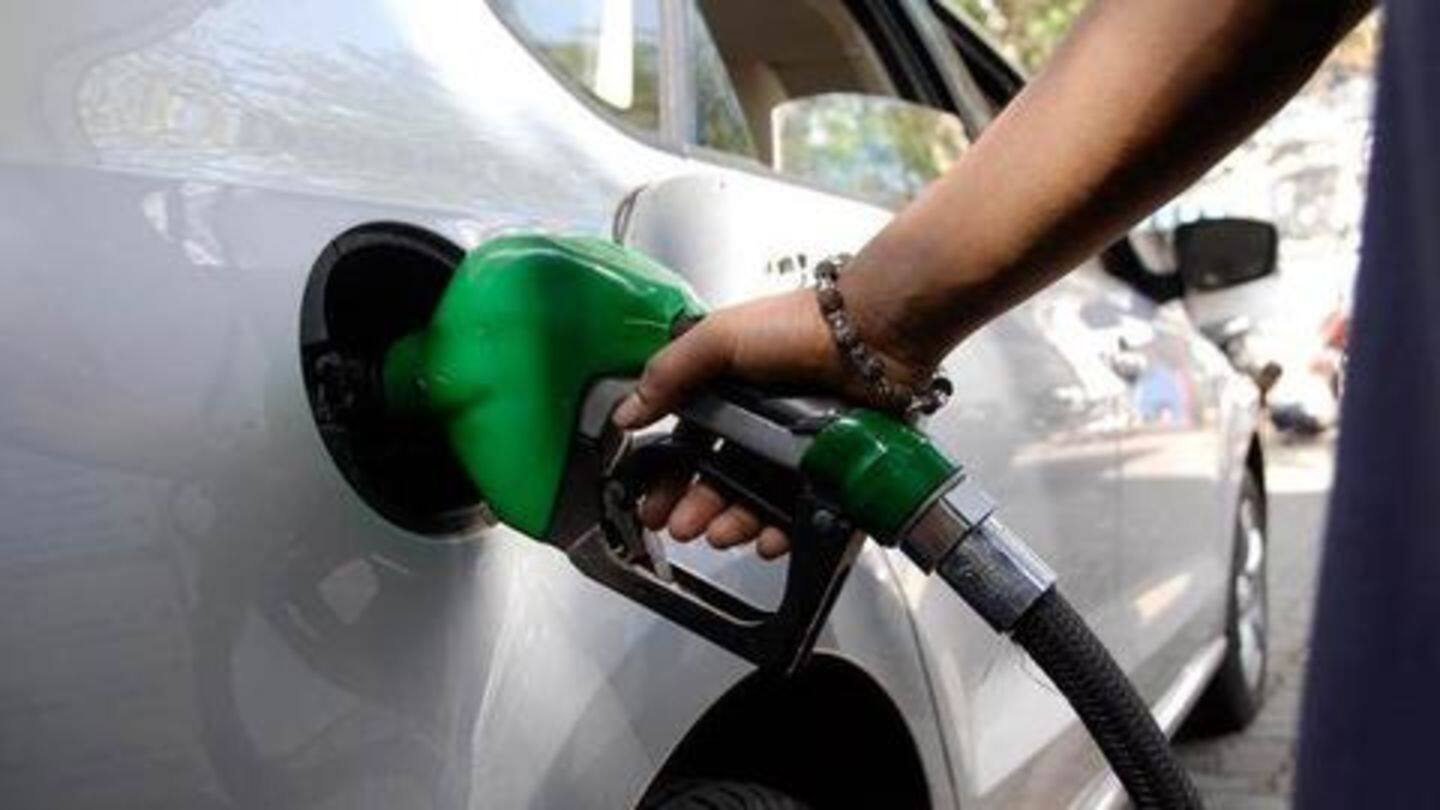
Soon, govt could impose Rs. 12,000 fee on petrol/diesel vehicles
What's the story
In a bid to push for greater usage of electric vehicles (EVs) in India, the government is on the verge of creating disincentives for petrol, diesel car owners.
Reportedly, the government is in the last stages of finalizing a 'feebate' policy that could see a fee of Rs. 12,000 slapped on cars that are powered by fossil fuels.
Here are the details.
Details
The policy has two primary objectives
The feebate policy, being drawn up by the NITI Aayog, aims to disincentivize the use of fossil fuel-powered cars, and incentivize the development and use of green vehicles.
The new policy was drafted after Prime Minister Narendra Modi shelved an older policy and demanded that a new one be made to incentivize battery development and bring down costs of electric vehicles.
Revenue
The policy will help the government earn thousands of crores
According to TOI, the feebate policy is expected to contribute a whopping Rs. 7,500cr to the state exchequer in its first year.
This money will be used to supplement the Rs. 732cr the government has set aside for EVs.
The surcharge on new petrol, diesel cars will increase to Rs. 70,000/car in the policy's fourth year, thereby contributing an estimated Rs. 43,000cr to the state exchequer.
Scope
All vehicles come under the purview of the policy
Petrol and diesel cars apart, two-wheelers, three-wheelers and other commercial vehicles will also fall under the purview of the policy.
Surcharge on such vehicles will range from Rs. 500 to Rs. 25,000 in the first year, and will be raised to a range of Rs. 4,500 to Rs. 90,000 by the fourth year of the policy.
Incentives
Incentives will be offered to those buying electric vehicles
While the policy will charge owners of fossil fuel-powered vehicles on one hand, on the other hand, it will incentivize the use of EVs.
People buying two-wheeler, three-wheeler, and four-wheeler EVs would receive direct incentives of Rs. 25,000 to Rs. 50,000 in the first year of the policy.
These incentives will gradually be brought down to Rs. 15,000 by the policy's fourth year.
Production
The government will also incentivize EV battery production
Further, the government is also looking to offer incentives to boost domestic EV battery production.
Reportedly, the government will offer Rs. 6,000 per kWh as an incentive to EV battery makers.
Additionally, funds to the tune of Rs. 200cr could also be invested for the development of indigenous technologies in EV batteries and power electronics.
Opinion
The policy could end up having negative outcomes
While the policy sounds good on paper, and follows the 'polluter pays' principle, it might end up having a negative effect.
First, if people looking to buy new petrol/diesel cars are disincentivized, they might stick to using their older, more polluting cars.
Second, the policy could have a negative outcome on urban mobility, considering India's dismal public transport system.
Third, despite incentives, EVs are likely to remain substantially more expensive than petrol/diesel cars.
Fourth, it doesn't address the lack of charging infrastructure for EVs in India.